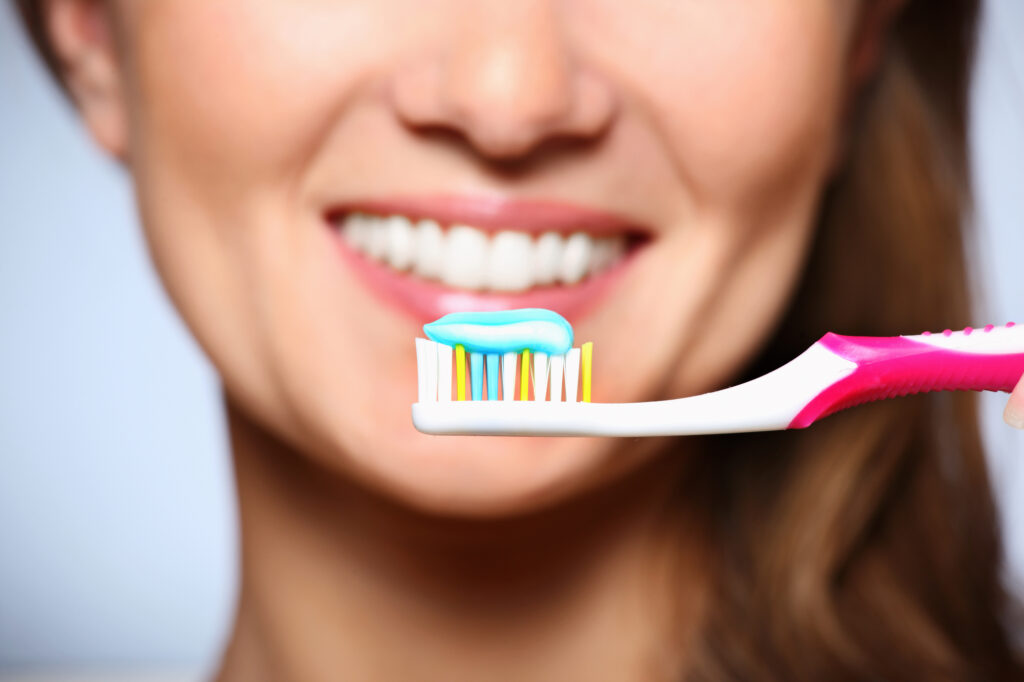
Starting our day on the right foot includes maintaining our oral hygiene. We hope you already know that you should be brushing your teeth twice per day, ideally in the morning and evening. You also should know that you should brush your teeth for two full minutes each time.
But one question that frequently pops up (and that many people do not know the answer to) is whether it’s better to brush before or after breakfast. Let’s discuss the implications of each choice to ensure we’re making the best decision for our dental health.
The Importance of Morning Oral Care
We take it for granted that we are supposed to brush our teeth every morning. But why, exactly, is that so important? During our sleep, our mouth doesn’t remain as idle as we might think. Saliva production decreases, which means bacteria can multiply. These microorganisms also become active, feeding, digesting, and leaving behind acidic byproducts.
By the time we wake up, you can notice the effects. This bacterial accumulation is the culprit behind morning breath and, if left unchecked, can lead to potential damage to our teeth and gums.
On the other hand, our breakfast foods, especially those that are acidic or sugary, can weaken our teeth’s enamel. Beverages, particularly coffee, not only are acidic but can also lead to staining over prolonged periods.
Brushing After Breakfast
Many people believe that waiting to brush until after breakfast is the obvious choice. For starters, you’ll be actively removing any food particles stuck between your teeth, ensuring a cleaner mouth. For those who enjoy beverages that stain, like coffee or tea, brushing post-drink can be beneficial in stain prevention.
But there’s a cautionary note: If you’ve consumed acidic foods or drinks, brushing immediately might not be a good idea. Common breakfast foods such as fruit, juice, and coffee, or even starchy, sugary foods like bread and pastries, can weaken your teeth’s enamel. Brushing right after consuming these types of foods can further stress enamel, and it can spread the residue from acidic or sugary foods and drinks over the surface of your teeth.
It’s often recommended to wait at least 30 minutes post-eating to avoid brushing your weakened enamel, and, in fact, the American Dental Association suggests waiting 60 minutes.
Brushing Before Breakfast
Choosing to brush as soon as you wake up can be beneficial. For one, it addresses the immediate concern of bacterial removal, offering you fresh breath as you start your day. Additionally, if you use fluoride toothpaste, it can provide a protective barrier against any acidic foods or drinks you might consume during your breakfast.
However, it’s worth noting that there’s a downside. Brushing immediately before your meal can leave an aftertaste, which can interfere with the taste of your food. And when you do eat breakfast, food particles may remain. If you choose to brush and then have breakfast, you can mediate this downside by swishing some water around your mouth to dislodge food particles and wash away acid.
Nighttime Matters Too
Before we wrap up, let’s touch upon the significance of our nighttime brushing routine. Evening oral care is paramount because it helps clean our teeth before the long hours of sleep, a prime time for bacteria to thrive. It’s best to brush at least 30 minutes after your last meal and consider complementing it with flossing and mouthwash for an all-around oral care routine.
Creating Your Routine
Oral care is indeed personal. What might be suitable for one might not be the ideal routine for another. The goal is to ensure you’re consistent and attentive to your oral hygiene needs.
If ever in doubt, don’t hesitate to contact our office for personalized advice from a trusted source. Your smile deserves the best care!